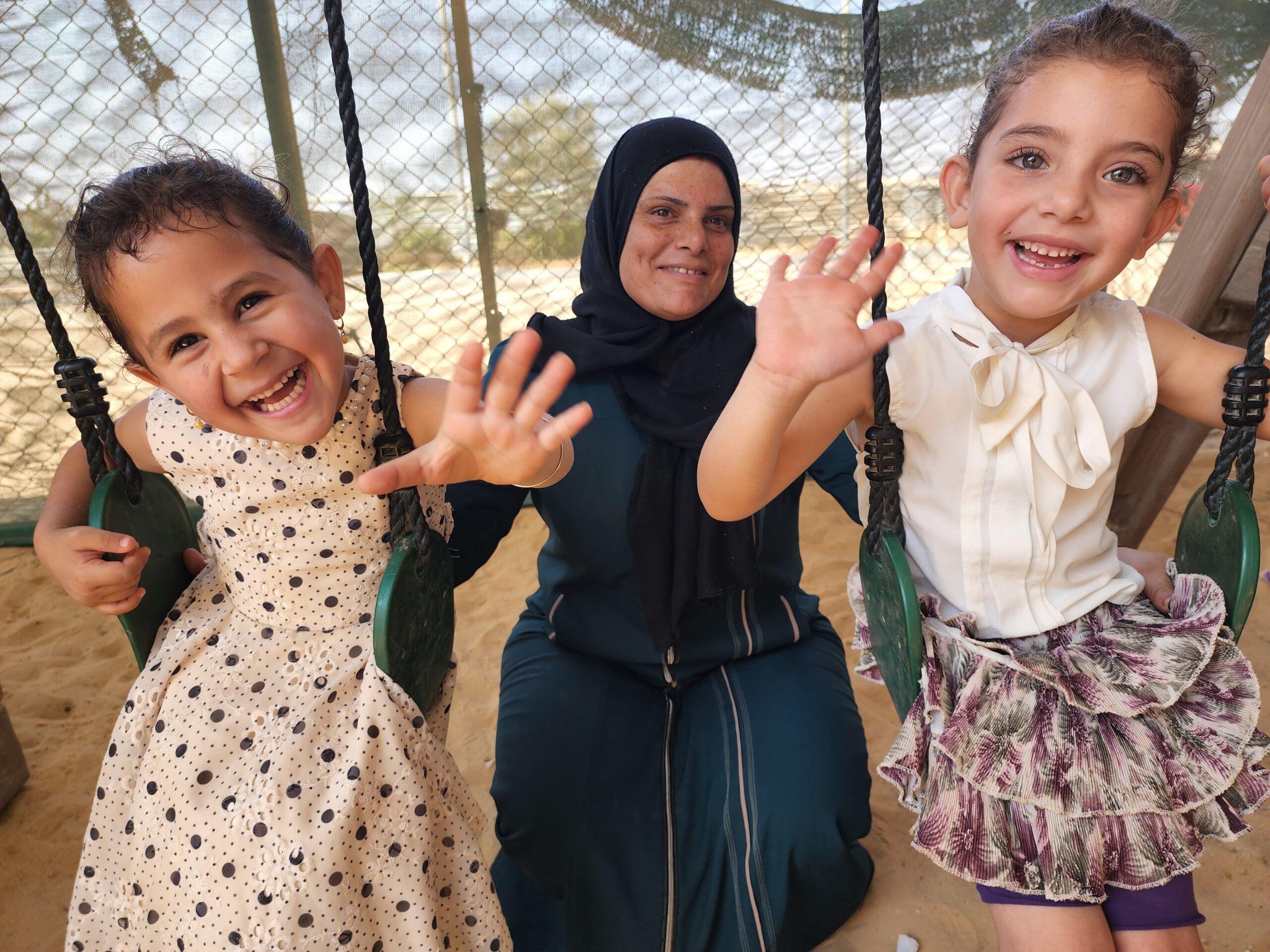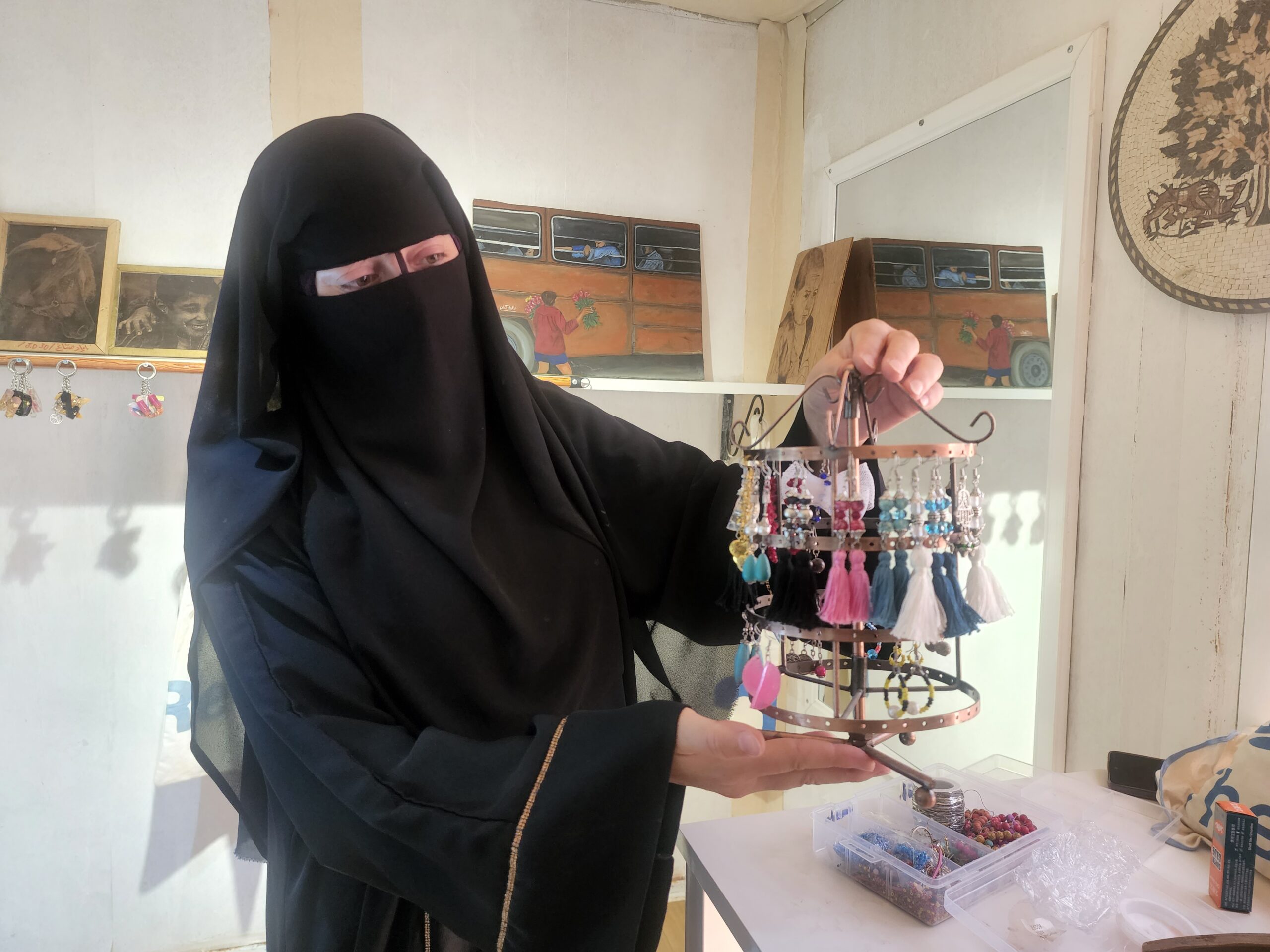Established by Blumont in 2019 with funding from UNHCR, the Made in Za’atari Center brings refugee women together from across the camp to learn and create while building an income. For women living in Za’atari Refugee camp in Jordan who are busy supporting their children, families, and community, the Center also provides an important social outlet.
As women participate in sessions on food processing, perfume making, handicrafts, marketing, and more, their children are cared for in the Center’s free daycare. The Made in Za’atari Center has fostered an entrepreneurial and supportive community for women who face myriad challenges.

Ena’am, center, is a cosmetologist at Za’atari Refugee Camp who overcame illiteracy to learn her trade and make a living at the Made in Za’atari Center.
Ena’am had always dreamed of becoming a cosmetologist. When she arrived at Za’atari, she was still illiterate and struggled to find any opportunity to support her family.
Amidst the challenges of life in the camp, she refused to let her circumstances limit her. Ena’am committed herself to learning the basics of reading and writing—opening the door to taking a comprehensive cosmetology training that Blumont conducted.
Now, she runs the beauty salon at the Made in Za’atari Center. Ena’am trains other women from the camp in hairdressing and cosmetics, earning community respect and an income doing what she loves.
“When I started working at the salon, I gained pennies,” she said. “Now, I can support my husband and pay for our bills.”
Tamara, also a refugee mother in the camp, came to the Made in Za’atari Center looking for ways to generate a new income for her family.
“I have skills in painting, embroidery, and crafts,” she said. “I came up with the idea of making accessories.”

Tamara sells her handmade accessories at the Made in Za’atari Center to earn and income and support her family.
Tamara shares her talents with other women at the Center, introducing new techniques that are now used in the accessories sold at the Made in Za’atari Gallery. Stepping into the Gallery, visitors are surrounded by earrings, necklaces, soaps, carvings, and other handmade pieces—all crafted by camp residents and all for sale.
“The Center provides training opportunities and a venue to sell our products,” Tamara said. “We meet new people from around the world and the friendships we have made here are definitely making us stronger.”
Ena’am sees the Made in Za’atari Center as a way for women at the camp to not only share their talents, but to share their story as well.
“Through selling accessories and soaps or providing services, we are sending a message to the world,” she said. “We show that, despite the difficulties and circumstances, women can do anything they set their mind to.”



